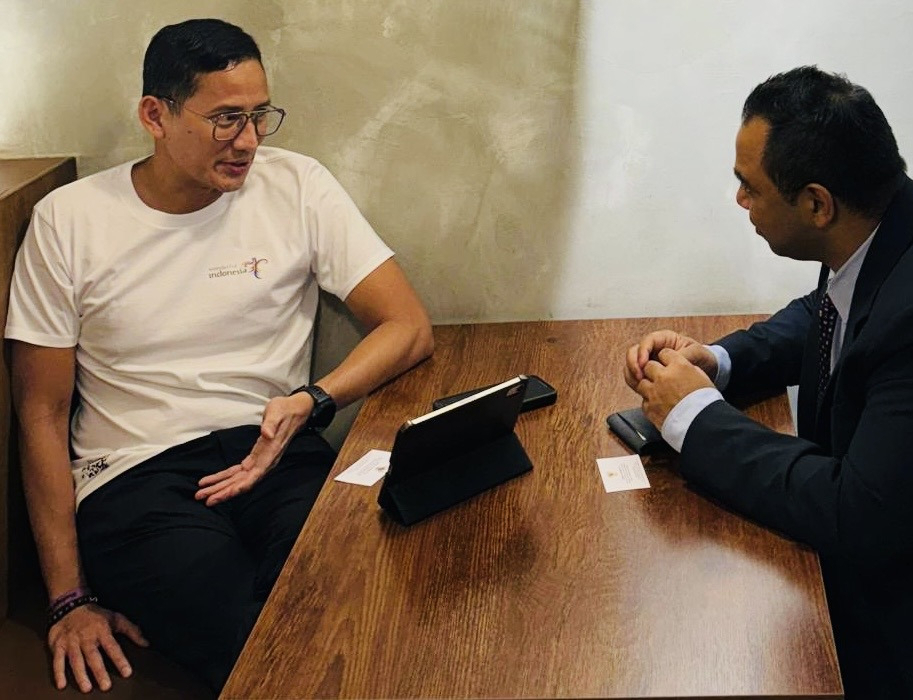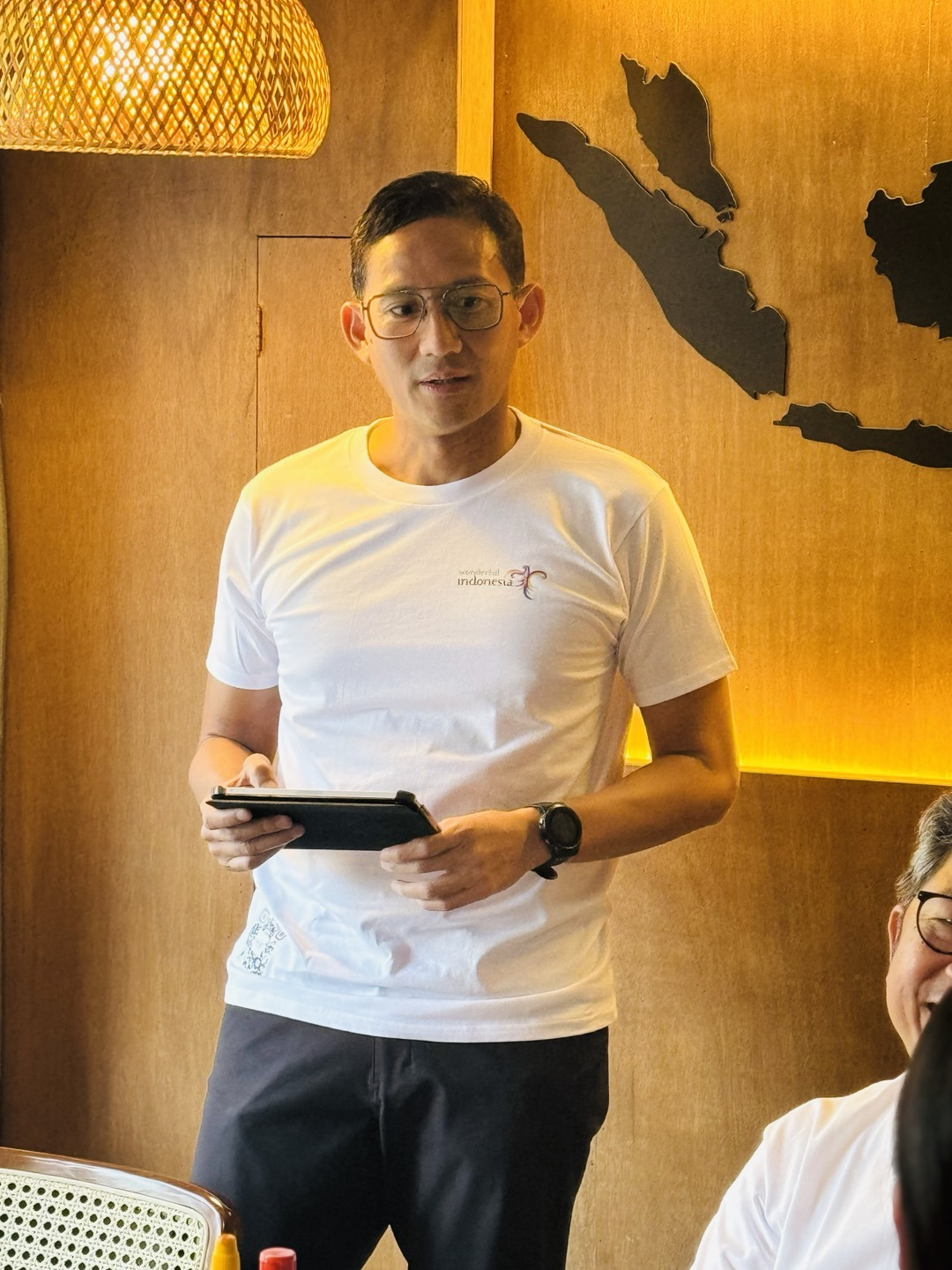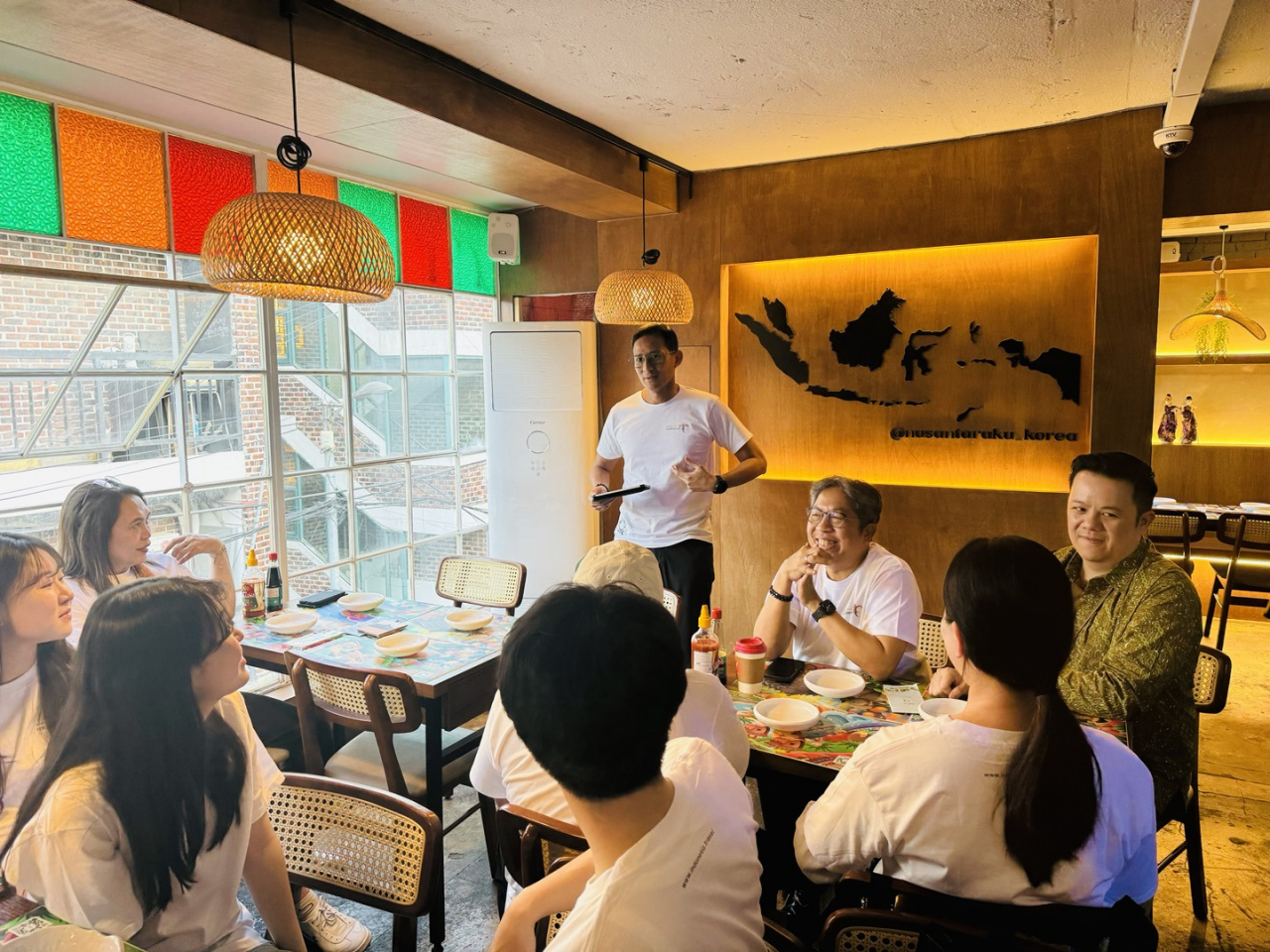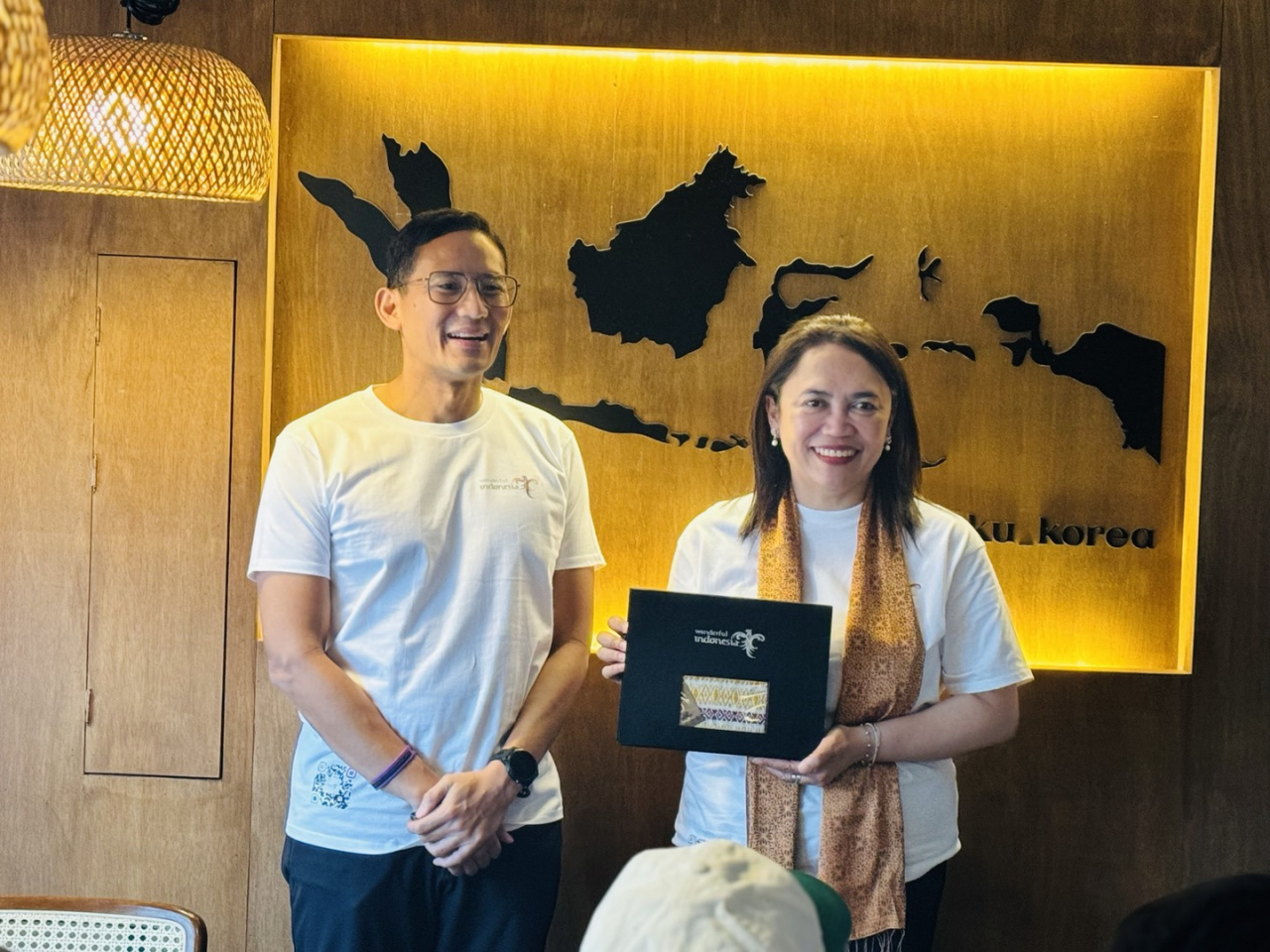 |
Indonesia’s Minister for Tourism and Creative Economy Sandiaga Uno speaks in an interview with The Korea Herald at an Indonesian Restaurant in Mapo-gu, Seoul on May 10. (Sanjay Kumar/ The Korea Herald) |
Indonesian leader Joko Widodo has asked his administration to learn from the South Korean government's drive to bolster the creative economy as part of the Southeast Asian country's effort to pursue its future growth engine, according to an Indonesian Cabinet member.
"President Joko Widodo has tasked us with emulating the Korean government's approach to bolster the creative industry," said Sandiaga Uno, Indonesian minister for tourism and creative economy in a recent interview with The Korea Herald.
Jakarta sees tourism as a vehicle to boost its creative economy, a concept first defined by UK author John Howkins to describe ways of utilizing creative assets for economic growth and development. The concept was deployed by the former conservative Park Geun-hye government in 2014 as a key national agenda.
The Indonesian government has prioritized the creative economy sectors in alignment with the Sustainable Development Goals. In 2023, Indonesia initiated the "Promoting Creative Economy for Sustainable Development" resolution at the 78th UN General Assembly, marking the first UN resolution specifically addressing the creative economy.
 |
Indonesia’s Minister for Tourism and Creative Economy Sandiaga Uno speaks in an interview with The Korea Herald at an Indonesian Restaurant in Mapo-gu, Seoul on May 10. (Sanjay Kumar/ The Korea Herald) |
Indonesia's creative economy contributes close to 8 percent of the nation’s GDP.
The minister was in South Korea to attend the Seoul International Travel Fair 2024 earlier this month.
The number of Korean travelers to Indonesia reached 347,185 in 2023, a 284 percent increase from the previous year. Korea is now eighth in the top 10 foreign tourists visiting Indonesia,” Uno said.
“Indonesian youth love Korean food, music and films, while Koreans are eager to explore Indonesia’s tourist destinations and cuisine. This mutual interest is the future of our relationship,” he said.
“I'm very optimistic about the future of Indonesia-Korea relations," the minister said.
 |
Indonesia’s Minister for Tourism and Creative Economy Sandiaga Uno interacts with Korean students during his visit to Seoul at an Indonesian Restaurant in Mapo-gu, Seoul on May 10. (Sanjay Kumar/ The Korea Herald) |
“Just as Korea has promoted its culture and identity, we aim to do the same with our natural and cultural treasures,” he stressed.
Bali has been a top tourist destination, but Indonesia has more to offer than just Bali, he said.
“We have five super-priority destinations beyond Bali, like Flores Island with the Komodo dragons, and Lake Toba, the largest volcanic lake in the world in North Sumatra,” said Uno.
Highlighting other unique destinations, Uno mentioned Borobudur, the largest Buddhist temple in Central Java, and North Sulawesi, known for its dive sites, natural parks and volcanic mountains.
“These are areas where we should enhance our partnerships within the Indonesia-Korea Comprehensive Economic Partnership Agreement, involving small-medium enterprises and young entrepreneurs,” he said.
 |
Indonesia’s Minister for Tourism and Creative Economy Sandiaga Uno and Indonesian charge d'affairs a.i. Zelda Wulan Kartikaat shjowcase batik at an Indonesian Restaurant in Mapo-gu, Seoul on May 10. (Sanjay Kumar/ The Korea Herald) |
When asked about the number of Korean tourists visiting Indonesia, Uno said the number has reached 90 percent of pre-pandemic levels.
“However, more Indonesians visit Korea, driven by the influence of Korean dramas and K-pop. We can focus on promoting high-quality experiences like golf tourism, which appeals to Korean travelers,” he said.
Uno also discussed strategic initiatives to attract more tourists, such as the management transfer of Batang Airport to Incheon Airport Management.
“This will bring more high-quality tourists to the Riau Islands,” he said, adding that the younger generation’s love for ecotourism and sustainability aligns well with Indonesia’s offerings beyond K-dramas and K-pop.




![[Herald Interview] How Gopizza got big in India](http://res.heraldm.com/phpwas/restmb_idxmake.php?idx=644&simg=/content/image/2024/11/20/20241120050057_0.jpg)


![[KH Explains] Dissecting Hyundai Motor's lobbying in US](http://res.heraldm.com/phpwas/restmb_idxmake.php?idx=644&simg=/content/image/2024/11/20/20241120050034_0.jpg)